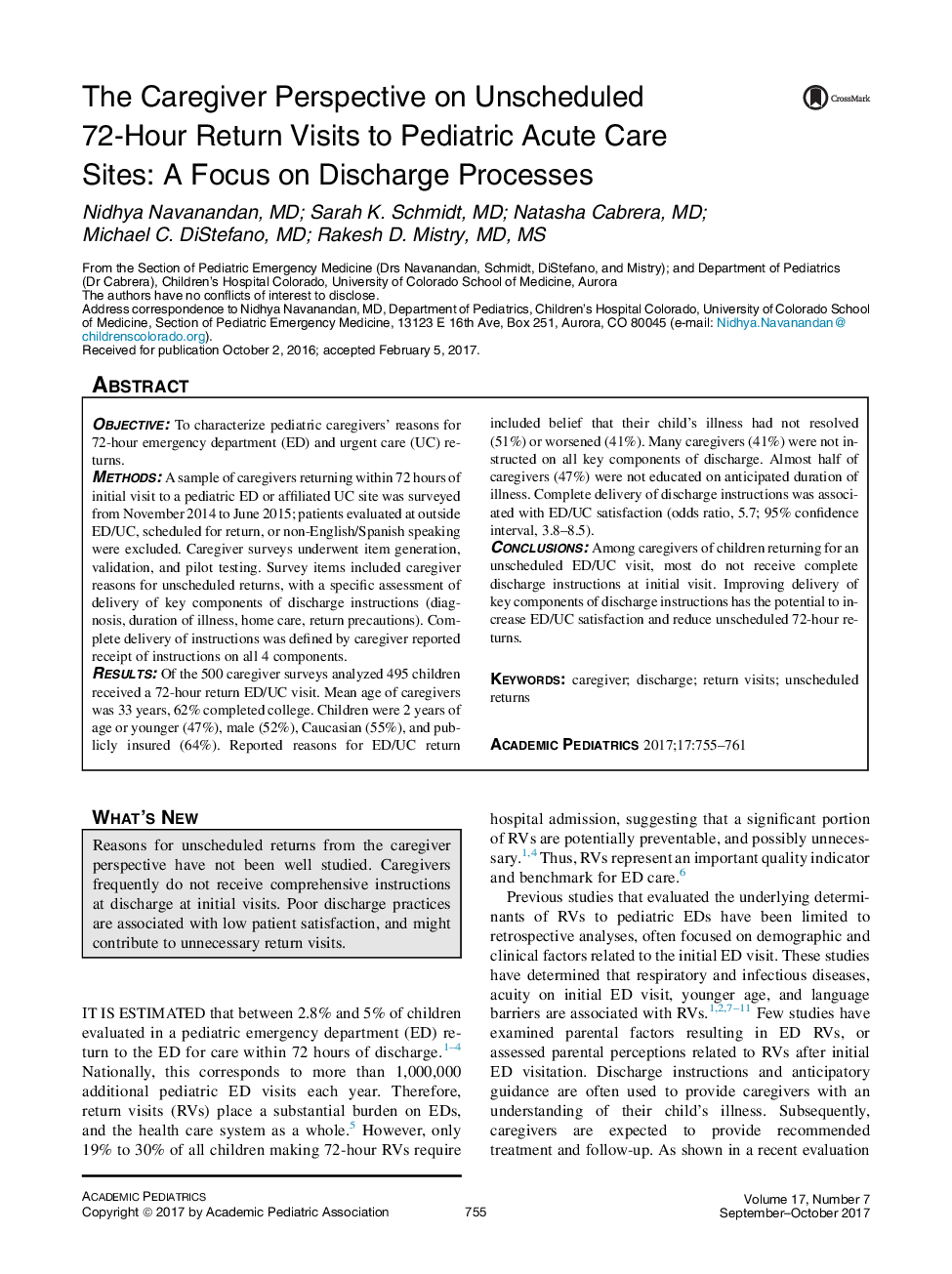| Article ID | Journal | Published Year | Pages | File Type |
|---|---|---|---|---|
| 5716769 | Academic Pediatrics | 2017 | 7 Pages |
ObjectiveTo characterize pediatric caregivers' reasons for 72-hour emergency department (ED) and urgent care (UC) returns.MethodsA sample of caregivers returning within 72 hours of initial visit to a pediatric ED or affiliated UC site was surveyed from November 2014 to June 2015; patients evaluated at outside ED/UC, scheduled for return, or non-English/Spanish speaking were excluded. Caregiver surveys underwent item generation, validation, and pilot testing. Survey items included caregiver reasons for unscheduled returns, with a specific assessment of delivery of key components of discharge instructions (diagnosis, duration of illness, home care, return precautions). Complete delivery of instructions was defined by caregiver reported receipt of instructions on all 4 components.ResultsOf the 500 caregiver surveys analyzed 495 children received a 72-hour return ED/UC visit. Mean age of caregivers was 33 years, 62% completed college. Children were 2 years of age or younger (47%), male (52%), Caucasian (55%), and publicly insured (64%). Reported reasons for ED/UC return included belief that their child's illness had not resolved (51%) or worsened (41%). Many caregivers (41%) were not instructed on all key components of discharge. Almost half of caregivers (47%) were not educated on anticipated duration of illness. Complete delivery of discharge instructions was associated with ED/UC satisfaction (odds ratio, 5.7; 95% confidence interval, 3.8-8.5).ConclusionsAmong caregivers of children returning for an unscheduled ED/UC visit, most do not receive complete discharge instructions at initial visit. Improving delivery of key components of discharge instructions has the potential to increase ED/UC satisfaction and reduce unscheduled 72-hour returns.
